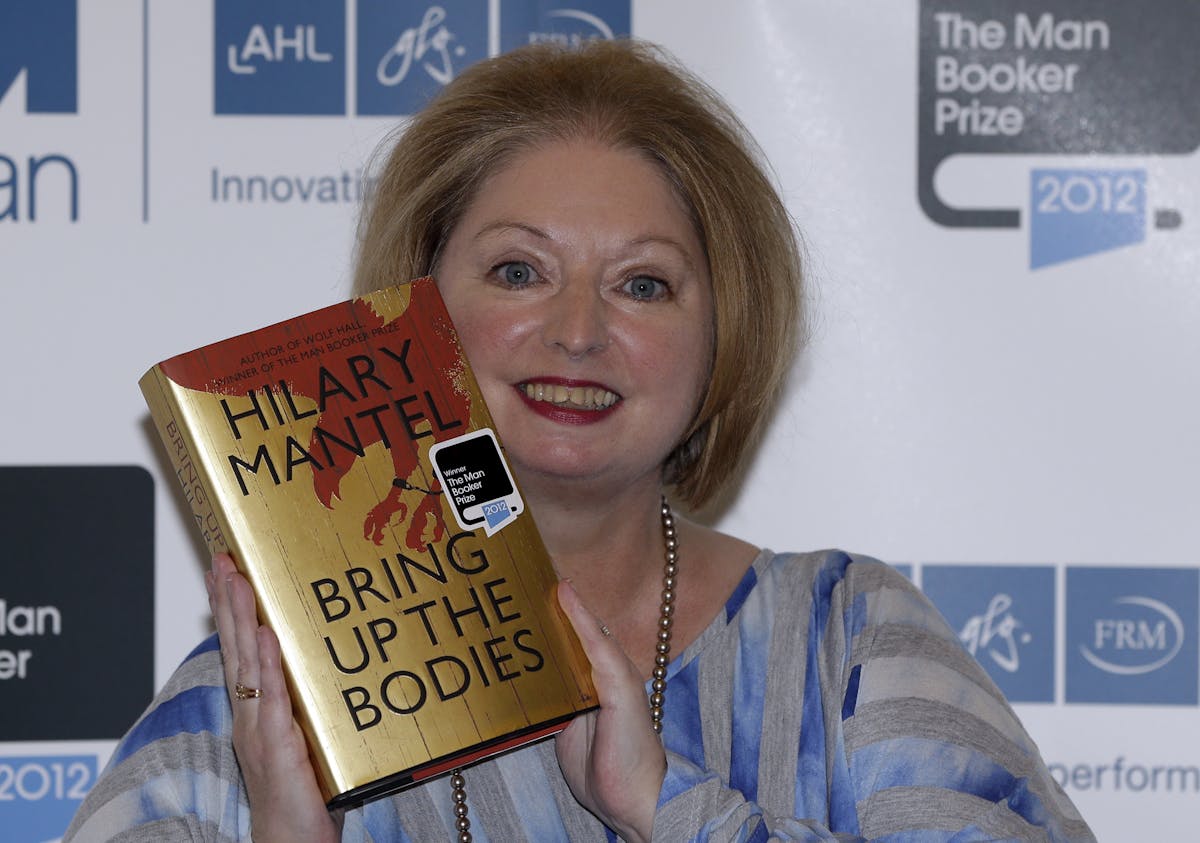Hilary Mantel, 70, Who Dusted English History With Archaic Eloquence
The English author managed to merge the historical novel with the psychological thriller.

The writer Hilary Mantel died too soon — she was only 70 — but she lived long enough to see a new Defender of the Faith at Westminster Abbey. That feels especially appropriate, as Mantel’s imaginative immersion in the Tudors will perennially link her to the first monarch who held that title, King Henry VIII.
Across three novels — “Wolf Hall,” “Bring Up the Bodies,” and “The Mirror and the Light” — Mantel dilated on what many see as the formative moment in English history: Namely, the years when Henry VIII broke from Rome, founded the Church of England, and yes, wed six times.
Mantel’s protagonist is not the king, but his chief courtier, Thomas Cromwell. Readers track his rise, linger with him at the summit, and then sorrow at his fall. In prose that delivers a dusting of archaic eloquence, Mantel managed to merge the historical novel with the psychological thriller.
She elevated both genres to the plane of literary artistry. Across her pages, Cromwell, Thomas More, Hans Holbein, Anne Boleyn, Catherine of Aragon, Henry himself, and countless others scheme and dream, plot and prevaricate, pick up swords and quills, bend the knee and roll an eye.
Mantel’s Cromwell, the son of a blacksmith and brewer who becomes Lord Chancellor, is one of contemporary literature’s signal creations. This Cromwell is Shakespearean in his inward life and ambiguous moral compass. It is his competence that renders the realm governable.
Henry’s third queen, Jane Seymour, murmurs, “Lord Cromwell is the government, and the church as well.” We see the Tudor court from the precise instrument of his self-made mind. It is Cromwell who, from behind the throne, shapes the kingdom that Henry rules.
Cromwell is behind the “dreams of all England: the dark forest, deserted heath, the stir in the leaves, the dragon’s footprint; the hand breaking the water of the lake.” It is Cromwell who effectuates the king’s break from the pope, his arithmetic that adds to the royal coffers and subtracts sacraments.
No saint, Cromwell chooses queens and removes them, and sometimes their heads. One of the trilogy’s animating tensions is the tragic relationship between Cromwell and More. The latter, canonized as a saint and Cromwell’s predecessor as Lord Privy Seal, will not advocate for the divorce that Henry seeks.
That’s because More cannot abide by his king’s heresies in respect of the pontiff. Cromwell, more skeptical of the Curia, delivers where More could not. Of his antagonist, Cromwell muses, “You never even saw me coming.”
No wonder the “Wolf Hall” books sold millions of copies. The first two won Booker prizes, and the third one was long-listed for that most prestigious of British awards. They also spawned two Royal Shakespeare Company plays, and a British Broadcasting Company series starring Mark Rylance.
Mantel reflected, “I’m not going to meet another Thomas Cromwell, if you think how long he’s been around in my consciousness.” Yet she excelled in nearly every genre and over a total of 17 books.
Born at Derbyshire to a family of Irish Catholic extraction, Mantel wrote novels that unfolded with unhurried eloquence, short stories that flashed like sharply cut diamonds, and essays — most appearing in the London Times — that carefully and caustically probed contemporary England. “Royal Bodies,” on the death of Princess Diana, is among the best things one can read on the monarchy.
Mantel, beset by chronic illness and plagued by incessant pain, resided on the coast of Devon, far from the haute hangouts of London’s literary scene. She was no stranger to controversy, though, calling the duchess of Cambridge, Kate Middleton, a “shop-window mannequin” and speculating in a short story on an assassination plot against Prime Minister Thatcher.
Still, Charles III, then the prince of Wales, anointed her as Dame Commander of the Order of the British Empire. In “Royal Bodies,” Mantel wrote that “it may be that the whole phenomenon of monarchy is irrational, but that doesn’t mean that when we look at it we should behave like spectators at Bedlam.”
Thinking of both Anne Boleyn and the princess of Wales, Diana Spencer, Mantel reflects that we “don’t cut off the heads of royal ladies these days, but we do sacrifice them, and we did memorably drive one to destruction a scant generation ago.”

